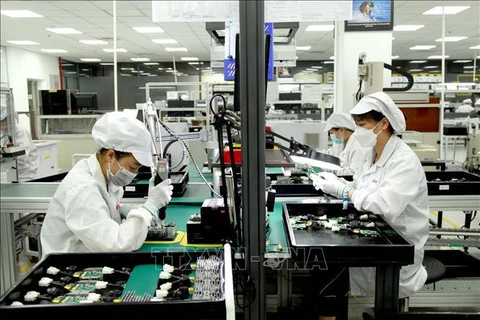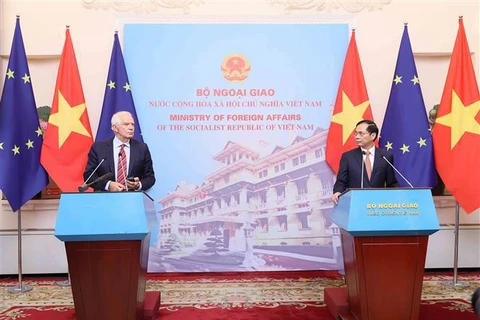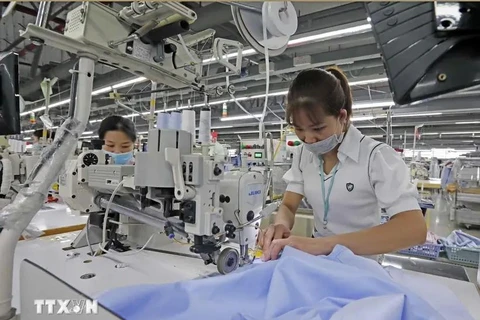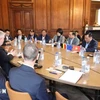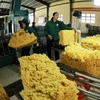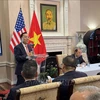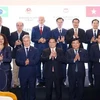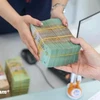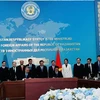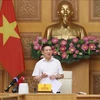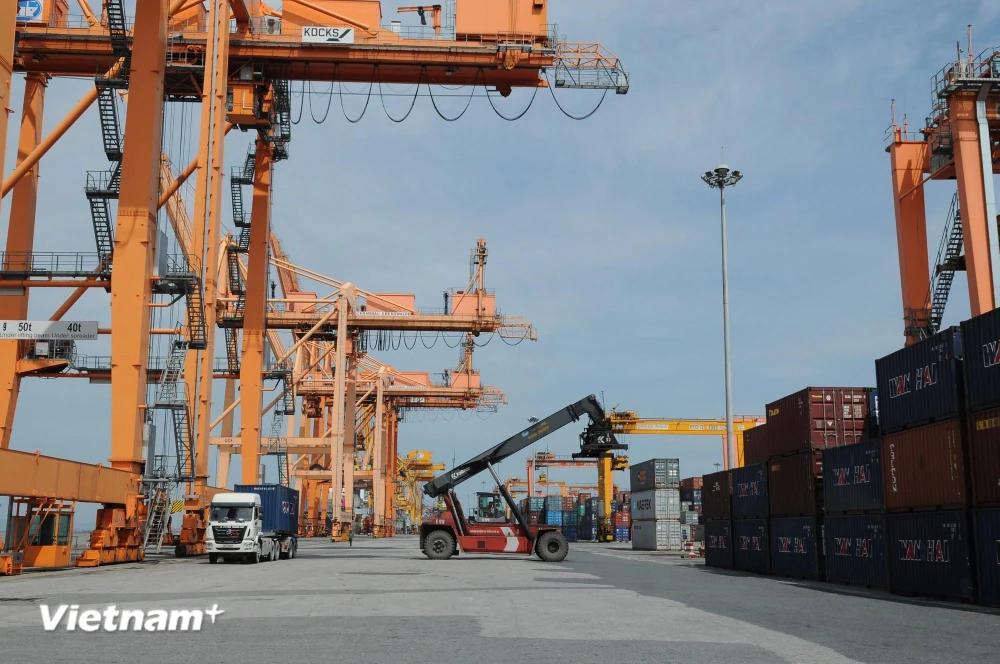
Hanoi (VNA) – The EU - Vietnam Free Trade Agreement (EVFTA) came into affect in early August 2020 as a new-generation high-standard deal. It stands as the most comprehensive of its kind the EU has signed with a developing country. Both sides have enjoyed highly positive results after four years.
Talking to VietnamPlus, Luong Hoang Thai, Director of the Multilateral Trade Policy Department under the Ministry of Industry and Trade, said among the new-generation FTAs Vietnam has participated in, the EVFTA has generated the most positive results.
He elaborated that the agreement has helped Vietnam make institutional improvements in a way that creates a more favourable business environment for foreign direct investment (FDI) attraction. The country has proactively amended legal documents so as not only to meet the FTA’s provisions but also create a more optimal business climate.

Through the FTA, Vietnam hopes to form supply chains with the EU, and these chains will take shape only when there is a strong investment flow from the EU to the Southeast Asian nation, he added.
So far, the EU has invested about 28 billion EUR (30.5 billion USD) in Vietnam, ranking sixth among foreign investors here, statistics show.
Together with the EVFTA, Vietnam also signed an investment protection agreement with the EU (EVIPA), but this pact is waiting for some remaining EU members to complete ratification before it can take effect.
Vietnam hopes that once the EVIPA is fully ratified, it will generate even greater benefits, Thai went on.

The EU has always been a market of leading importance for Vietnam. Exports to this bloc currently account for about 12 - 15% of Vietnam’s total overseas shipments.
More importantly, it is a large market with substantial scientific - technological and management strengths. If Vietnam manages to secure success in this market, it can also enter other demanding countries, according to the official.
During the first four years of the EVFTA enforcement, he continued, Vietnam has seen exports growth of over 10% and recorded a trade surplus with the EU. This has helped the country gain balance in overall foreign trade as it has a relatively large trade deficit with neighbour countries.

Vietnam has emerged as a leading exporter in the region. Among members of the Association of Southeast Asian Nations (ASEAN), it now posts the biggest revenue in exports to the EU. However, the EU is a large market while Vietnam’s share there stands at just over 2%, so stronger efforts are needed to further tap into this market, he pointed out.
There is now a trend of strong transition in the EU and developed countries which adopt increasingly strict regulations related to climate change fight, green transition, and deforestation prevention.
Those regulations are barriers but on the other hand, if Vietnam succeeds in meeting those standards, it is an opportunity for the country to create its own competitive edge to outpace rivals.

Therefore, the Government issued a detailed action plan to assign tasks to relevant ministries and sectors, Thai said, adding that Vietnam is also working to encourage businesses to join hands to meet the EU’s increasingly stringent rules./.
